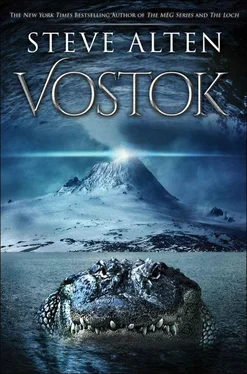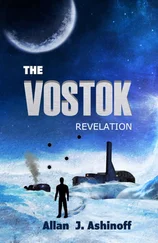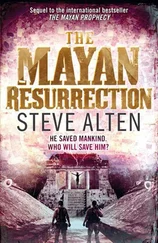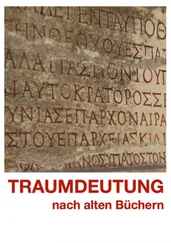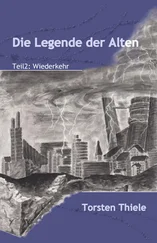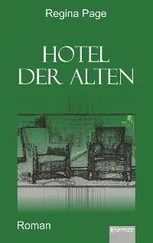Vostok, East Antarctica
Earplugs, bench seating with webbed backs, tiny windows, and a ride that induced hemorrhoids, we were back onboard another C-130 transport, this time bound for our final destination — a minus-forty-degree desert of ice located a thousand miles to the southeast of Prydz Bay.
Vostok. After six months of head games and fears, I was finally on my way. And I was truly excited. Perhaps it was the past week of training with Ben, but my attitude and confidence level had changed. The simple truth was that Vostok really was the holy grail of science, an unexplored frontier that could potentially reveal how life came to be on Earth. For whatever reason, Ben and I had been chosen among thousands of explorers to be its Neil Armstrong and Buzz Aldrin, and my ego was running wild.
The call from Ming Liao had upped the ante. Something had happened on the first Valkyrie drone launch, an unexpected find. Ming refused to provide any details other than to say that she wanted her two pilots on site immediately.
True was brooding. He had not wanted to leave his new lover. Conversely, I hadn’t thought about my family since arriving at Davis. Part of it was the mental and physical demands of learning how to pilot the submersible; part of it was my own acceptance of the mission.
The gray-haired Russian scientist seated across from True and me had been staring at my face ever since we had taken off. Twenty minutes into the flight, he leaned toward me and shouted over the engine noise, “You are Wallace, yes?”
“Yes.”
“Mikhail Kopilevich, geologist. This will be your first time at Vostok?”
“Yes. What about you?”
He snorted. “Eighteen summers on top of four winters. My first trip from Mirny Station was in winter on supply tractor. It took us entire week to travel thirteen hundred kilometers in minus twenty-five degrees Celsius. You know what is minus twenty-five degrees Celsius?”
“About minus seventy-eight degrees Fahrenheit.” I leaned in. “How do you Russian scientists handle such extreme cold?”
He winked. “We know survival secrets.”
“Anything you’d care to share?”
“First, you share something with me. Why does Chinese woman exclude my country from this new field operation? Without Russian Antarctic Expedition there is no Vostok Station. There is no discovery of lake.”
“From what I understand, the coalition scientists involved in this new research station were afraid your team was not adhering to strict contamination protocols. You used Freon and kerosene to lubricate your borehole. Some of these chemicals tainted the bore samples and could have breached the lake.”
The geologist snapped. “We stopped borehole before we reached lake! Vostok is under tremendous pressure. On breakthrough, water will rush up borehole, freeze, and seal chemical fluids.”
“It’s not my expedition, Dr. Kopilevich. I’m simply an invited guest.”
“I think you are more than invited guest, Dr. Wallace. You should know new equipment is developed by St. Petersburg Nuclear Physics Institute to ensure lake remains uncontaminated upon intrusion. Visit our station; I will give you personal tour.”
“Thank you.”
“Consider this gift from new friend.” The Russian reached into his bag and removed a thirty-ounce tub of butter. “When Vostok weather becomes too cold, eat fistful of butter. It will make you warm inside.”
* * *
Standing on an ice runway two hours later, I seriously contemplated scooping a mittenful of butter into my mouth.
Vostok greeted us with a punishing forty-mile-an-hour katabatic wind that dropped minus thirty-eight into another realm of cold. It abused our carefully planned layers of Extreme Cold Weather gear and seeped into our bones. It formed snotsicles on my upper lip and pelted my tinted goggles with shards of snow.
Dragging our duffle bags, we waddled like penguins to an awaiting bright red truck as our team of Chinese technicians loaded the crate containing the Barracuda onto a sled.
The Hägglund was a Swedish snow vehicle with cab space for eight passengers and a trailing sled that could tow up to two tons. Powered by a Mercedes turbo diesel engine, the truck rode on four rubber tracks and a loose suspension system that gave us a nauseating herky-jerky ride, made worse by its twelve-mile-an-hour maximum speed.
Forty torturous minutes later, we arrived at the dome.
The structure that housed the expedition was a three-story-high, three-hundred-fifty-foot-in-diameter geodesic dome, its gold-painted roof composed of an array of trianglular panels that were far more stable than the standard rectangular-cut structures. Highly resistant to snow, ice, and wind, the dome needed no internal columns or interior load-bearing walls, and required less power to heat than box architectural designs. Erected using prefabricated components, it could be disassembled if need be and moved quickly, which was a major consideration when taking into account the fact that Vostok’s waters were spread out over 6,060 square miles. Different sections of the lake could produce vastly different discoveries — and life-forms.
Finding life in Vostok depended on two major issues. The first dealt with how the lake had formed. Was it simply a basin that had filled with meltwater fifteen million years ago, or had it been a flourishing natural lake that rapidly froze over during Antarctica’s last major climate change? Geologists examining satellite photos generally agreed that Vostok’s shape and location rendered it a natural rift lake, formed thirty million years ago when tectonic forces had split open to forge a long, narrow water basin. Surrounded by the East Antarctic highlands, Vostok’s surface waters would have frozen over quickly when temperatures dropped, potentially entrapping its aquatic life-forms.
This led to one of the key questions our expedition had been organized to answer: had complex life-forms survived?
Most species found on Earth rely on food sources dependent on photosynthesis, the process by which plants make energy from sunlight. Vostok’s waters were isolated in darkness, and yet in both the deep ocean and certain rift lakes, unique ecosystems had evolved based on a process by which certain microbes created energy through a chemical reaction called chemosynthesis. The process began when geothermal vents released superheated chemical-laced waters rich in hydrogen sulfide into the lake or sea. Chemosynthetic microbes spawn microbial mats, which in turn feed plants and grazers such as snails, limpets, and scaleworms. Fish consume the grazers, predators eat the fish, and suddenly you have the foundation of an entire ecosystem devoid of sunlight.
* * *
Our truck parked before the main entrance of the dome — a prefabricated aluminum structure that served as a weather room. Grabbing our gear, we braved the wind for another twenty strides and hurried inside, our boots tracking snow onto the rubber mats.
A sign was posted in English, Chinese, German, and French:
All Personnel must DEGOMBLE before entering dome.
Ben translated. “They want us to brush off the powdered snow.”
True took the opportunity to slap the back of my headgear clean of debris. “Wouldn’t want ye tae mess up the dome, Dr. Wallace.”
“True, if you’re that unhappy being here, then just go home. Or catch the return flight back to Davis and carry on with the Swede. I really don’t need a 260-pound babysitter with an attitude.”
The big fella thought for a minute, then grinned. “Nah, I’ll stay. Maybe Dr. Liao needs tae be degombled, ye think?”
“By you?” Ben blurted a sarcastic half-laugh. “Pal, she’s so far out of your league you can’t even see the playing field.”
Читать дальше
